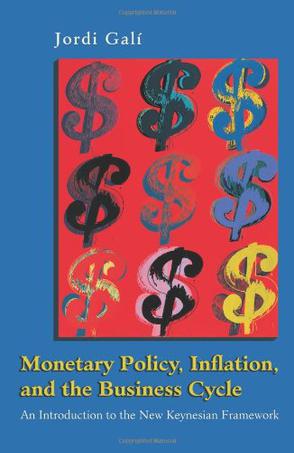目录
Preface ix
CHAPTER 1: Introduction 1
CHAPTER 2: A Classical Monetary Model 15
CHAPTER 3: The Basic New Keynesian Model 41
CHAPTER 4: Monetary Policy Design in the Basic New Keynesian Model 71
CHAPTER 5: Monetary Policy Tradeoffs: Discretion versus Commitment 95
CHAPTER 6: A Model with StickyWages and Prices 119
CHAPTER 7: Monetary Policy and the Open Economy 149
CHAPTER 8: Main Lessons and Some Extensions 185
Index 195
【展开】
【收起】
内容简介
The New Keynesian framework has emerged as the workhorse for the analysis of monetary policy and its implications for inflation, economic fluctuations, and welfare. It is the backbone of the new generation of medium-scale models under development at major central banks and international policy institutions, and provides the theoretical underpinnings of the inflation stability-oriented strategies adopted by most central banks throughout the industrialized world. This graduate-level textbook provides an introduction to the New Keynesian framework and its applications to monetary policy. Using a canonical version of the New Keynesian model as a reference framework, Jordi Gal explores issues pertaining to the design of monetary policy, including the determination of the optimal monetary policy and the desirability of simple policy rules. He analyzes several extensions of the baseline model, allowing for cost-push shocks, nominal wage rigidities, and open economy factors. In each case, the implications for monetary policy are addressed, with a special emphasis on the desirability of inflation targeting policies. The most up-to-date and accessible introduction to the New Keynesian framework available Uses a single benchmark model throughout Concise and easy to use Includes exercises An ideal resource for graduate students, researchers, and market analysts
【展开】
【收起】
下载说明
1、追日是作者栎年创作的原创作品,下载链接均为网友上传的的网盘链接!
2、相识电子书提供优质免费的txt、pdf等下载链接,所有电子书均为完整版!
下载链接
